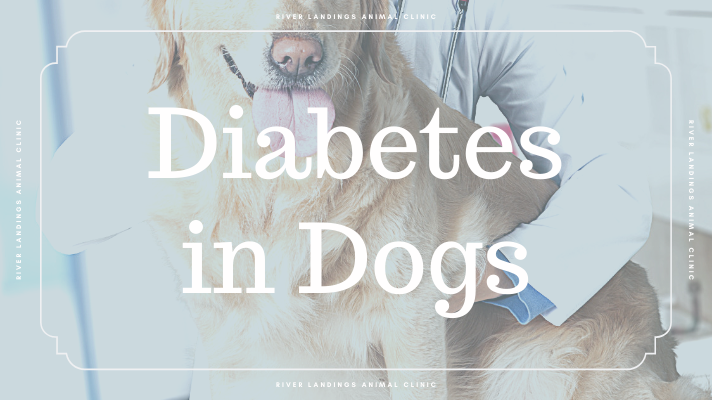DID YOU KNOW: It is estimated that anywhere from 1 in 500 to 1 in 100 dogs will develop diabetes in their life-time and that number is only rising with each year.
High blood sugar, which is the result of diabetes, can impact the body’s ability to function normally, leading to an increased risk of problems such as heart disease and stroke in dogs.
Here’s what you need to know about the two types of canine diabetes, symptoms, possible causes, treatment options and what you can do to prevent this disease.
Types of Diabetes in Dogs
Diabetes is an endocrine disorder. Type 1 diabetes affects the body’s ability to create enough insulin to appropriately regulate blood sugar levels. Type 2 diabetes affects the body’s ability to respond to normal levels of insulin.
Although there are two types of diabetes in dogs, they don’t line up exactly with what we know about Diabetes in people.
Type 1 diabetes, or insulin-deficiency diabetes, is the most common type of diabetes in dogs. It occurs when the cells in the pancreas that create insulin are destroyed.
Type 2 diabetes, or insulin-resistance diabetes, develops when other hormones in the body prevent insulin from operating correctly. These problematic hormones can be produced by excess body fat, which is why overweight individuals are at higher risk of developing Type 2 diabetes.
A hormone called progesterone (which is produced during pregnancy and after a heat cycle) may also go up during a false pregnancy or as a result of a uterine infection called pyometra.
Symptoms of Diabetes in Dogs
Most common signs of diabetes in dogs are:
Drinking excessively (much more than usual)
Urinating excessively (much more than usual)
Having a ravenous appetite
Losing weight rapidly or suddenly
Less obvious symptoms of diabetes include:
Recurrent infections
Weakness
Poor coat quality
Cataracts
Seizures
In the early stages of diabetes, symptoms may not be too severe, but once a patient is a full-blown diabetic, they aren’t very subtle.
Dogs That Are Predisposed to Diabetes
Although all dogs can develop diabetes, there are a select few breeds that are most likely to develop diabetes over the course of their lives:
Samoyed
Miniature Poodle
Toy Poodle
Pug
Tibetan Terrier
Cairn Terrier
Yorkshire Terrier
Fox Terrier
Bichon Frisé
Dachshund
Siberian Husky
Another major factor is age.
Dogs most commonly develop diabetes at an age of five years or greater. In rare cases, a dog may be born diabetic.
Treating and Managing Your Dog’s Diabetes
Can a dog with diabetes be cured? It’s possible but unlikely.
Once a dog has diabetes, it's typically a permanent diagnosis. However, cases of insulin resistance caused by pregnancy or diestrus (part of the heat cycle) can sometimes disappear if the dog is spayed very early after diagnosis. However, even in these instances, there’s a risk for a recurrence later in life.
Even so, diabetes does not have to impact your dog’s quality of life. Dogs with diabetes don’t know they are sick, and when treated properly, they do not feel sick. In fact, they can still do all the things they love (except overeat).
Diabetes Management
Insulin injections are a necessary part of diabetes treatment. Once diagnosed, injections should be done twice daily, but finding an appropriate dosage can be both trial/error, and time-consuming.
Your veterinarian will perform blood glucose curves, which involves taking a blood sugar sample every couple of hours, starting as soon as possible after the morning dose of insulin and finishing as close to the evening dose as possible.
These curves may need to be done every one to two weeks for several months to find the best possible dosage for your dog.
In addition to twice-daily insulin injections, it is also very important that your dog’s diet, exercise, and stress levels stay as consistent as possible. Significant changes to any of these parameters can dramatically affect the amount of insulin that your dog needs.
Your veterinarian will come up with a detailed plan regarding the timing and dose of insulin as well as how to handle any potential problems that might develop. For instance, vets commonly recommend that insulin injections be given right after meals so that the dose can be lowered if the dog eats less than normal.
Cost of Treatment
Because of the daily injections and lengthy process to find the right dosage, dealing with canine diabetes can be frustrating and expensive. This disease requires a pet parent to have a lot of patience.
That said, it is treatable, and your dog can live for years with a high quality of life.
The cost of dog diabetes is highest in the initial stage of treatment but can be a significant financial burden. Depending on the type of insulin and dose, your dog’s diabetes medicine can vary from the cost of $40-$200 per month.
How to Prevent Canine Diabetes
Preventing diabetes in dogs is not easy.
For many dogs, diabetes is in their genes, but spaying your female dog is one easy way to prevent insulin-resistant diabetes caused by diestrus or pregnancy.
Obesity is often linked with diabetes. However, it is not entirely confirmed in canines. That said, obesity is believed to contribute to insulin resistance (among other problems), so preventing it may lead to more effective treatment.
Pancreatitis (inflammation of the pancreas) is known to be a risk factor for canine diabetes. Pancreatitis can be genetic but can also be a result of feeding fatty foods such as pork and other meat products.
Feed your dog a healthy, balanced dog food and restrict extras to fruits and vegetables.
Regular exercise and avoiding overfeeding are the keys to maintaining a lean body weight. Not sure what or how much to feed your dog? Your veterinarian can help you come up with a dietary plan to prevent obesity customized to your dog's best interest.
Hear From Us Again
Don't forget to subscribe to our email newsletter for more recipes, articles, and clinic updates delivered straight to your e-mail inbox.
Related Categories:

